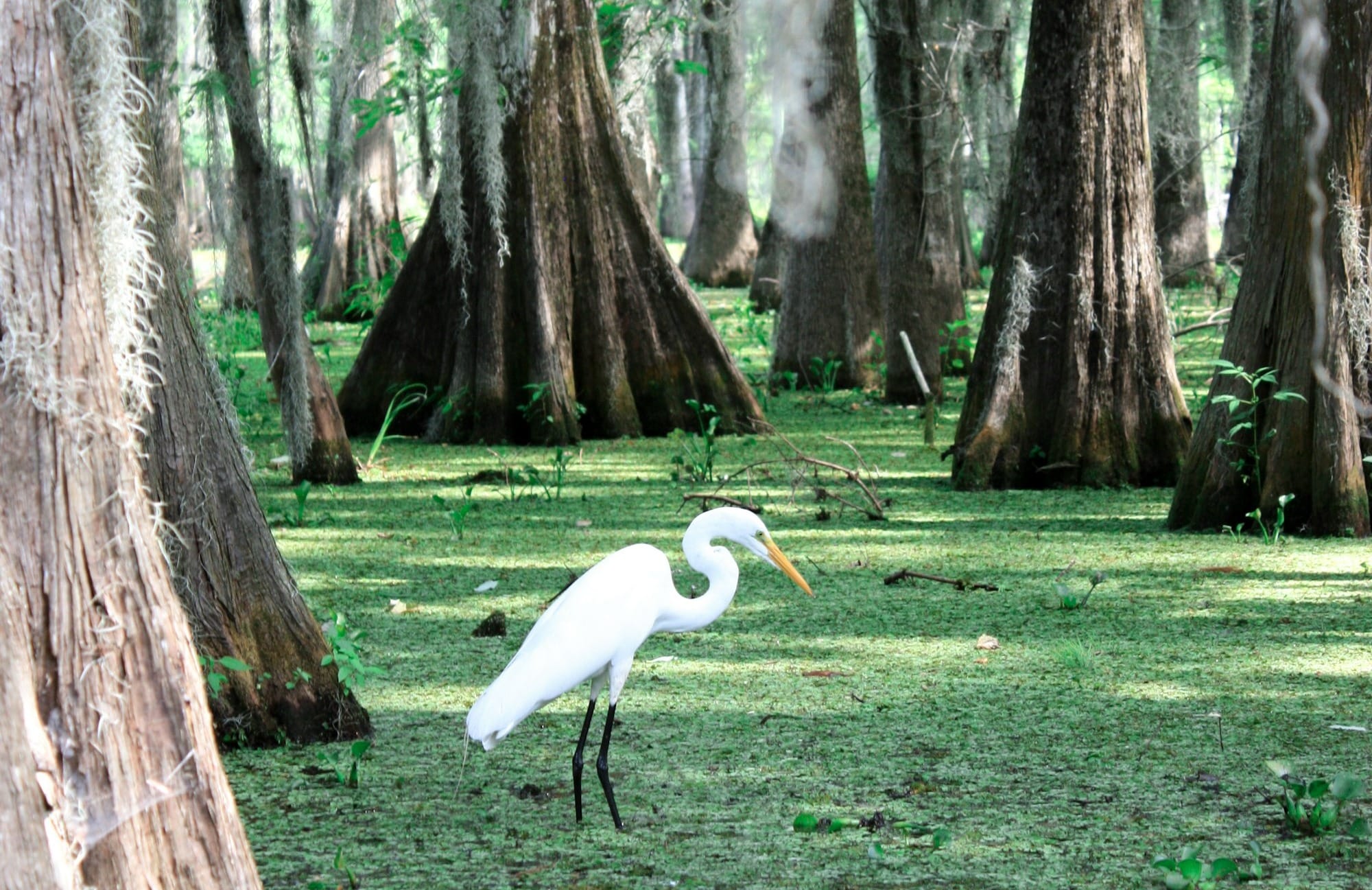
Being a Climate Person Isn’t All About Hope or Feeling Great All the Time
Our Conversation With Writer and Terra.do Keynote Guest Mary Annaïse Heglar
Our Conversation With Writer and Terra.do Keynote Guest Mary Annaïse Heglar
Outline
“I hate the idea of giving someone hope. It’s so infantilizing to me,” Mary Annaïse Heglar says. “Hope is something that you have to earn. It’s not something someone else can give you.”
A New Orleans-based writer known for her climate essays, Heglar has thought about this a lot. She’s a Climate Person (“I keep wanting to think of a better term for that, but nothing’s coming to me”) and says whether you’re discussing house plants or the fact that it’s cherry season, “I will bring climate into that conversation.”
In this case, climate change was already the topic at hand—Heglar was taking questions from Greg Findley, who directs Terra.do's Climate Change: Learning for Action course. You can watch the full replay below. While Heglar spoke, her gray cat’s tail swished intermittently along the bottom of the screen.
As to hope, Heglar sometimes feels obliged to offer it to audiences as a kind of salve, “and that’s supposed to help them sleep at night.” Raising her eyebrows, she advises, “You might need to go through a period where you can’t sleep at night. I know I did. It’s part of growing up, I think.”
Indeed, in a 2021 piece in The Nation, Heglar wrote that while sometimes people ask what gives her hope, she prefers a different formulation more along the lines of, How do you keep from getting so depressed you can’t get out of bed? Her answer to Terra.do: “Sometimes I can’t. You’re not going to feel great all the time!”
On Climate Grief
An inconvenient fact about the heartache that comes with paying attention to and caring about our warming world is, for a Climate Person, it’s not optional. Heglar’s writing (in addition to her essays in places from Wired to Vox, she just published a children’s book on climate change, and her first novel comes out in May) frequently reflects and honors that reality.
Giving people room to grieve matters, Heglar says, because “I don’t think that broken people fix things. I think that it’s important to heal yourself before you go about healing the world.” As part of this, it’s worthwhile to take time to reflect, because “I don’t think you can solve a problem that you don’t understand.”
Heglar points to the example of activist Greta Thunberg. “She talks a lot about going through a period where she was just so depressed she couldn’t do anything, and now she’s one of the most powerful advocates in the world.”
This is a contrast to some common advice on how to talk about climate change: the idea that “we can’t tell people how scary it is because then they’ll shut down and they won’t do anything.” Here, Heglar’s eyebrows lift again. “Well, maybe they won’t for a while. But I think that we have to treat people like adults and allow them to deal with the truth of things. We can do hard things. We just have to allow ourselves to heal, because grieving is healing.”
Climate Commitment
Another question Heglar sometimes gets is, What can I do about climate change? She finds this intimidating, “because it’s almost like I need to be a career counselor.” Her suggestion: “Let go of the idea that it needs to be one thing. It can be multiple things.” These might range from calling public officials to going vegan—Heglar is—to flying less to doing whatever you're good at.
The key lies in not limiting yourself to just one form of involvement. This, Heglar says, is the difference between climate action and climate commitment. Climate commitment also means making peace with some imperfections: You might not nail everything you attempt, but “you do what you can and continually get better” in a quest to achieve big impacts while consuming with minimal impact.
The hour-long conversation sprawled. Recommended reading: The Great Derangement, by Amitav Ghosh. Recommended listening: The Drilled podcast, by Amy Westervelt, with whom Heglar previously worked on the show Hot Take; start at the beginning, Heglar advises. Recommended viewing: Beasts of the Southern Wild, a 2012 movie nominated for four Oscars.
For more from our keynote event with Mary Annaïse Heglar, ranging from her expansive thoughts on climate justice to the headline she says she’ll never live down, check out the full replay below.
Watch the entire keynote
Curious to learn more about the Climate Change: Learning for Action course?
More like this
So You're Ready to Step Up on Climate Action. Now What?
Folks ready to learn and do more about climate change have an array of options to get started. What are their respective pros and cons, and how does Terra.do stack up?
Our Next Cohort's Nickname Is the Manatees. Here's Why That's Special.
We've named each graduating class after animals at risk in our warming world, and we've just finished our first full lap through the alphabet.
Couldn’t We All Use More Storage?
Where are we going to put all that clean power from variable renewables like solar and wind? The world of batteries is already ramping up.

 Background
Background


